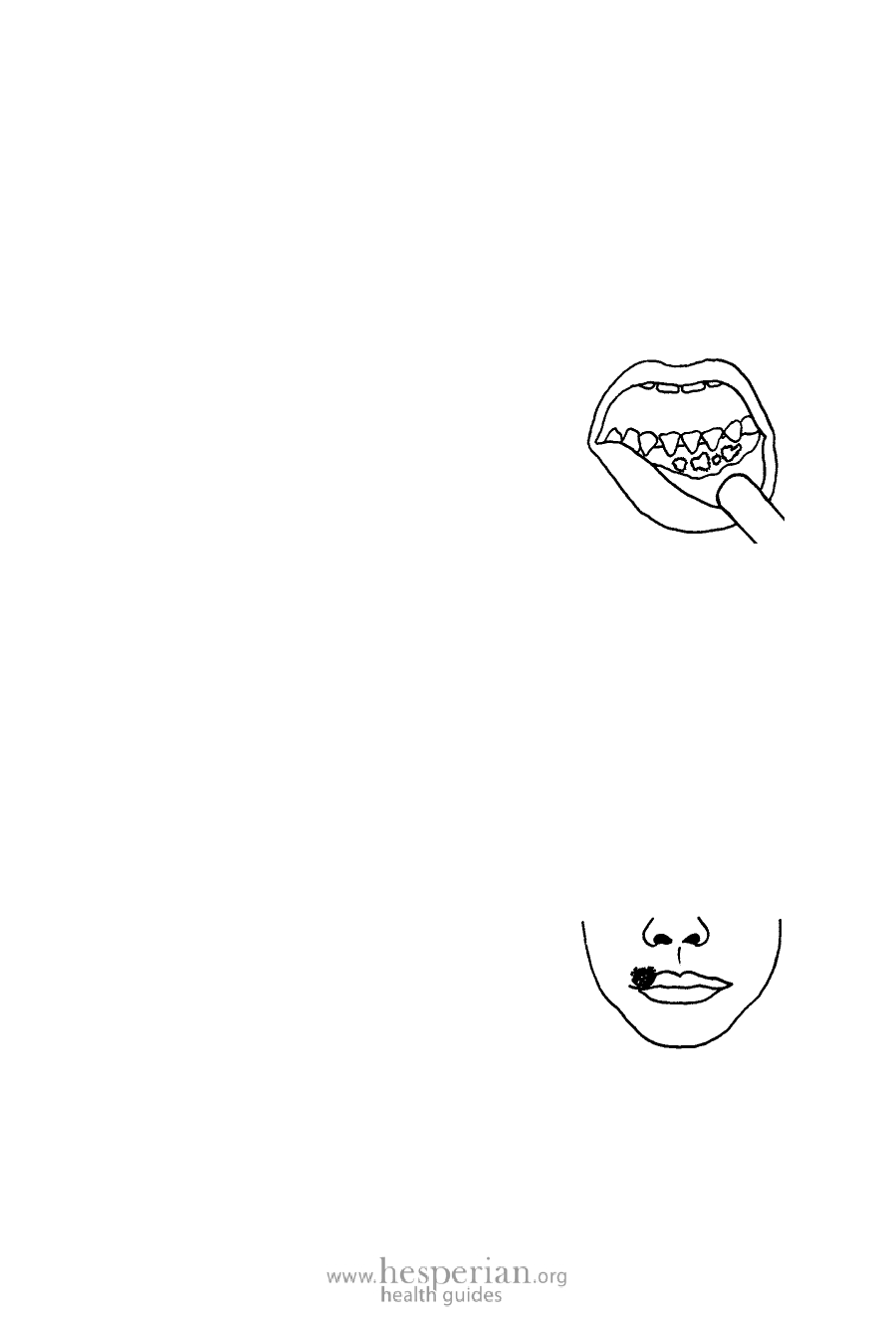
104 Where There Is No Dentist 2012
FEVER BLISTERS
Herpes virus is a kind of germ that causes fever blisters. Fever blisters are
sores that can form inside the mouth on the gums or outside on the lips. Blisters
on the inside cheeks only are not from herpes (see canker sores, page 106).
Sores inside the mouth are a serious problem that usually affect children
between 1 and 5 years old. A child with fever blisters in his mouth can become
very sick. He will not be able to eat properly. If he does not drink enough fluids,
he can become dehydrated (lose his body water). This is dangerous! Fever
blisters are also a problem for people living with HIV. See pages 192 to 193.
SIGNS:
• Sore throat.
Inside the mouth
• Fever.
• Crying, stops sucking 2 to 3 days before sores appear.
• Spit spills from the mouth because it hurts to swallow.
• Painful swelling under the jaw.
• Bright red blisters on the gums, but not between the teeth. Blisters also
may be on the roof of the mouth.
TREATMENT:
Medicine cannot kill the herpes virus. The sores will go away by themselves in
about 10 days. The treatment is to help the person feel more comfortable and
to be sure he gets enough to eat and drink.
1. Give aspirin or acetaminophen for fever (page 94).
2. Wipe milk or yogurt over the sores to protect them before eating. Wash
your hands before touching the inside of someone’s mouth! (See
page 86.) Then give food that is soft and not spicy. If the person cannot
eat, prepare a special milk-oil drink, as on page 111.
3. Give lots of fluids to drink.
Sores on the lips usually occur after the age of 5.
They often appear when the person is weak and
sick (for example, with diarrhea or pneumonia).
Usually there is no fever. The blisters soon break
open and release water. When they dry, a crust
forms. The blisters often return. When sores leak
water they can pass infection. If you or anyone else
touches them, wash your hands immediately.
On the lips
To prevent the blisters from becoming infected, put an antibacterial cream
or petroleum jelly (Vaseline) on them. If you hold ice against the sores for
several minutes each day, it may help them heal faster. See page 193 for
more options.